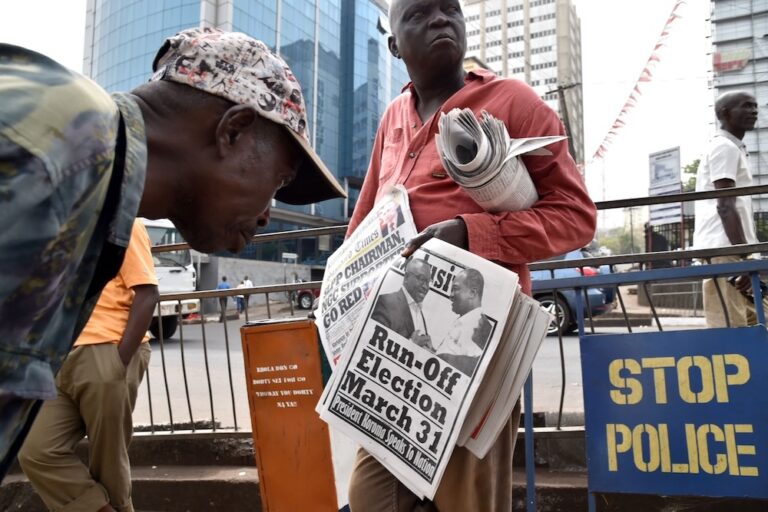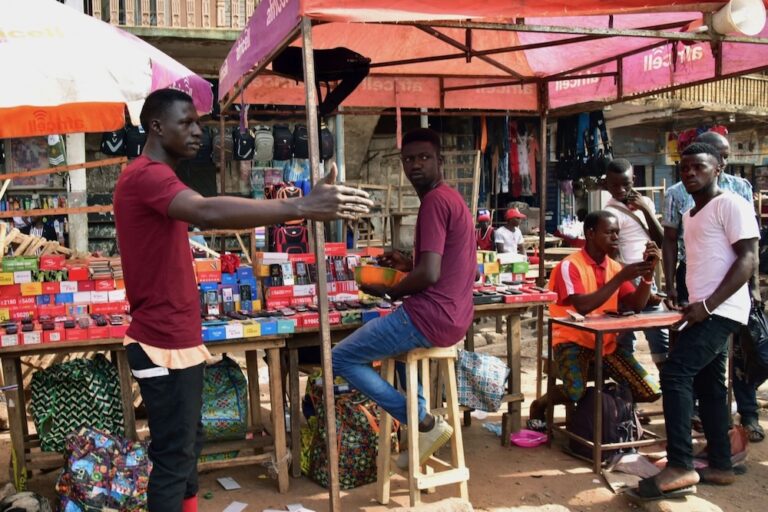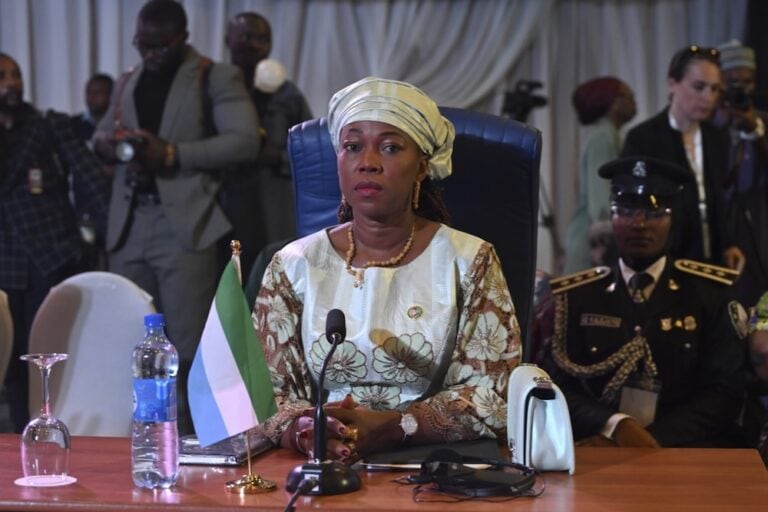(RSF/IFEX) – In a letter to Sierra Leonian President Ahmed Tejan Kabbah, RSF asked the head of state to publicly confirm his commitment to press freedom and take concrete measures to ensure that journalists can work freely and safely. “Journalists cannot do good work in a context of fear and incessant threats,” stated RSF Secretary-General […]
(RSF/IFEX) – In a letter to Sierra Leonian President Ahmed Tejan Kabbah, RSF asked the head of state to publicly confirm his commitment to press freedom and take concrete measures to ensure that journalists can work freely and safely. “Journalists cannot do good work in a context of fear and incessant threats,” stated RSF Secretary-General Robert Ménard. “It is the duty of the authorities to ensure the security of journalists in order to maintain the distribution of pluralistic and independent information,” added Ménard.
According to information gathered by RSF, two journalists were assaulted in the streets of Freetown on 8 October 2001. Alhaji Jalloh, a reporter from the private bi-weekly “African Champion”, was punched by policemen in a police station while trying to get information about a road accident. That same day, Joseph Vandi, a reporter from the private daily “The Salone Times”, was manhandled by agents from the United Nations Mission in Sierra Leone (UNAMSIL), who attempted to control a group of former rebels who were demanding their benefits. UNAMSIL’s spokesman said an inquiry has been launched into the affair.
Furthermore, on 5 October, Pasco Temple, a local correspondent for the Pan-African News Agency (PANA) and RSF, was detained for more than one hour in a cell at the Pademba Road prison. The journalist went to the prison to meet a friend. A magistrate accused him of contempt of court and asked a policeman to imprison him.
Finally, RSF noted that on 14 September, seven private press journalists received death threats in a letter signed by an unknown group calling itself the “Danger Squad.” According to the letter, the journalists “write nasty articles.” They were warned that if they did not stop writing such articles, the group would “put an end to their earthly existence.” The letter was sent to David Tam Baryoh, from the Centre for the Media, Jonathan Leigh, editor of the “Independent Observer”, Pious Foray, editor of the weekly “Democrat”, Richard Olu Gordon, editor of “Peep”, Paul Kamara, editor of “For di People”, Chernor Ojuku Sesay, from “Pool”, and Philip Neville, editor of the “Standard Times” (see IFEX alert of 26 September 2001). Journalists received similar threats in 1998. In January 1999, at least eight media professionals were murdered by Revolutionary United Front (RUF) rebels (see IFEX alert of 23 April 1999).


